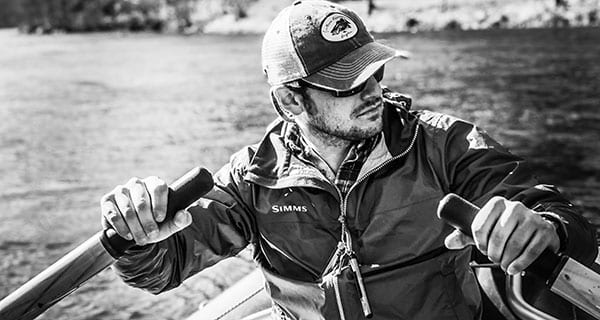This past year has been weird, hasn’t it?
Within a matter of a couple of weeks, our world as we knew it has transcended into something unfamiliar and foreign to all of us. Arguably, the Covid-19 pandemic has been the most radical societal shift since the terrorist attacks of 9-11 in 2001. While fishing is generally a constant respite from the rest of the world’s troubles, I’ve found, over the last few months, inevitable shifts that have been accelerated by current events. It makes me wonder, as a guide and a conservationist, how the world will continue to change and how those changes will affect us as anglers.
The most obvious change that I’ve noticed, since the start of the Covid-19 pandemic, is that our public lands and our mountains as a whole have been overrun with people. Many people from “off the mountain” have retreated earlier than normal to their summer homes followed by an unusual spike in the number of tourists visiting our area. People associate where we live with isolation, so this shouldn’t necessarily be a surprise that folks from dense population centers, such as Raleigh or Atlanta, have retreated to the mountains.
How does this affect us? Well, as I’m sure most people know, fishing was one of the few activities deemed “safe” by the “powers that be” to engage with during and after quarantine. Fishing, as a whole, is what our area is associated with among other popular outdoor recreational activities. Places that I guide on, that receive relatively low traffic in the late spring to early summer, suddenly saw a massive spike in the amount of pressure they received, and as we enter the spike of our dry season, that wave doesn’t seem to be letting up.
I’ve written previously on the effects of over-saturation. Some streams and rivers can handle and recover from this increase in traffic, while others I’m afraid are never going to revive themselves to their previous glory. The biology and science behind all of this would take a whole novel to write, but in short, some populations (of particularly, trout) can’t handle being misused or mishandled. With an increase in tourist traffic comes an unfortunate increase in ignorance of fish handling/ catch and release practices. One has to remember that the majority of the public views fishing as just something to do, without thinking about their consequences to the environment by the keeping (sometimes way above their limit) of fish. Judging by the amount of fish guts and worm cans I’ve seen already; some populations have been completely devastated.
From the standpoint of a conservationist, I believe that we were lacking in the state from a fisheries management perspective of our gamefish populations a decade ago to account for the amount of fishing pressure we have received, and the covid-19 crisis has only exacerbated that dilemma. My hopes are that we, within the angling community here in Western NC, can recognize these issues before it’s too late. The ultimate protector of our wild gamefish populations is not the government, but frankly, lays within the hands and actions of everyday anglers like you and me. Just something to ponder on.
Ethan Hollifield is a member of a conservation organization called 2% For Conservation and a guide for Southern Appalachian Anglers.
